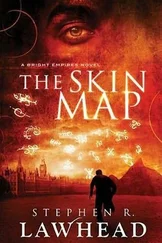Upon graduation I applied for a place in the Celtic Studies program and was accepted. Being the only student from my hometown high school ever to attend Oxford, let alone graduate, was A Very Big Deal. It was written up in the local Paper to the delight of my sponsors, the American Legion Post Forty-three, who, in a giddy rush of self-congratulation, granted me a healthy stipend for books and expenses. I hustled around and scrounged a small grant to cover the rest, and, Presto! I was in business.
Simon thought an advanced degree sounded like a splendid idea, so he went in for history-though why that and not astrophysics, or animal husbandry, or anything else is beyond me. But, as I said, he had a good brain under his bonnet and his advisers seemed to think he'd make out all right. He was even offered rooms in college-a most highly sought-after situation. Places for undergrad students are scarce enough, but rooms for graduates are out of the question for any but the truly prized individual.
Privilege again, I suppose. Simon's father, Geoffrey Rawnson, of Blackledge, Rawnson and Symes Ltd, no doubt had something to do with it. But who was I to complain? Top of the staircase and furnished with a good share of the college's priceless antiques-no less than three Italian Renaissance masterpieces, carved oak panelling, Tiffany tables, a crystal chandelier, two Chippendale desks, and a red leather davenport. Nor did the regal appointments end there; we had a meticulous scout, good meals in the dining hall fortified with liberal doses of passable plonk from the college cellarer's legendary cellars, modest use of student assistants, library privileges undergrads would kill for-all that and a splendid view across the quad to the cathedral spire. Where would I get a situation like that on my own?
Simon wanted us to continue on together as before, so he arranged for me to share his rooms. I think he saw it as three or four more years of bachelor bliss. Easy for him. Money was no object. He could well afford to dither and dally till doomsday, but I had my hands full just keeping up with the fees. It was imperative that I finish, get my degree, and land a teaching position as quickly as possible. I dearly loved Oxford, but I had student loans to repay and a family back in the States that had begun wondering loudly and often if they were ever going to see me again.
Also, I was rapidly reaching an age where marriage-or at least concubinage-appealed. I was tired of my prolonged celibacy, tired of wending my weary way along life's cold corridors alone. I longed for the civilizing influence of a woman in my crude existence, as well as a graceful female form in my bed.
This is why I resented taking this absurd trip with Simon. I was neck-deep in my thesis: The Influence of Goidelic Cosmography in Medieval Travel Literature. Lately, I had begun to sense fresh wind on my face and the faint glimmer of light ahead. Confidence was feebly sprouting. I was coming to the end at last. Maybe.
It is likely Simon realized this and, perhaps unconsciously, set out to sabotage me. He simply didn't want our good times to end. If I completed my degree ahead of him, he would have to face the cruel world alone-a prospect he sought to hold off as long as humanly possible. So, he contrived all sorts of ingenious stratagems for side-tracking me.
This asinine aurochs business was just another delaying tactic. Why did I go along with it? Why did I allow him to do this to me?
The truth? Maybe I didn't really want to finish, either. Deep down, I was afraid-of failure, of facing the great unknown beyond the ivory towers of academia. After all, if I didn't finish I wouldn't fail; if I didn't finish, I could just live in my snug little womb forever. It's sick, I know. But it's the truth, and a far more common malady among academics than most people realize. The university system is founded on it, after all.
«Move yer bloomin' arse!» muttered Simon at the driver of a dangerously overloaded mini. «Get over, you great pillock.» He had been muttering for the last fifty miles or so. A six-mile traffic jam around Manchester had put us well and truly behind schedule, and the motorway traffic was beginning to get to him. I glanced at the clock on the dash: three forty-seven. Digital clocks are symptomatic of our ambivalent age; they provide the precise time to the nanosecond, but no greater context: an infinite succession of «You Are Here» arrows, but nary a map.
«It's almost four o'clock,» I pointed out. «Why not let's take a break and get some tea? There's a service area coming ip.»
He nodded. «Yeah, sure. I could do with a pee.»
A few minutes later, Simon worked his way over to the exit asic and we were coasting into an M6 oasis. The parking lot was jammed; everyone had rolled up for tea. And many of them were having it inside their cars. I have always wondered about this peculiar habit. Why would these people spend hour upon hour driving and then pull into a rest area only to stay locked in their cars with the windows rolled up, eating sandwiches from a shoebox, and drinking tepid tea from a thermos? Not my idea of a welcome break.
We parked, locked the car, and walked to the low brick bunker. A foul gray sky sprinkled drizzle on us, and a brisk diesel-scented wind drove it into our clothes. «Oh, please, no,» Simon moaned.
«What's wrong?»
He lifted a dismissive hand to the much-abused blue plastic letters affixed to the gray concrete wall facing us. The gesture was pure disdain. «It's a Motorman Inn-they're the worst.»
We shuffled into the gents. It was damp and filthy. Evidently some misguided rustic had herded diarrhetic cattle through the place and the management had yet to come to terms with the crisis. We finished our business quickly and retreated to the concourse where we proceeded past a gang of black-leathered bandits loitering before a bank of screeching kill-or-be-killed arcade games. The cheerful thugs tried to beg loose change from us, but Simon imperiously ignored them and we pushed through the glass door and into the cafeteria.
There was a queue, of course, and the cakes were stale and the biscuits shopworn. In the end, I settled for a Twix bar and a mug of tea. Simon, on the other hand, confessed to feeling peckish and ordered chicken and chips, apple crumble and cream, and a coffee.
I found us a table and, having paid, Simon folded himself into the booth opposite me. The room was loud with the clank of cutlery and rank with cigarette smoke. The floor beneath our table was slimy with mashed peas. «God, this is grotesque,» groaned Simon, but not without a certain grim satisfaction. «A real pigsty. The Motormaniacs strike again.»
I sipped my tea. The balance of milk to brew had been seriously overestimated, but never mind; it was hot. «You want me to drive awhile? I'm happy to spell you.»
Simon dashed brown vinegar from a sachet over his chicken and chips. He speared a long sliver of potato; the soggy digit dangled limply from his fork. He glared at it in disgust before popping it into his mouth, then slowly turned his basilisk gaze toward the food counter and the kitchen beyond. «These sub-literate drones have no higher challenge to their vestigial mental faculties than to dip over-processed potatoes into warm oil,» he said icily. «You'd think they'd get it right eventually-the laws of chance, if nothing else.»
I didn't want to get involved, so I unwrapped my Twix and broke off a piece. «How much farther to Inverness, do you reckon?»
Writing off the chips as a total loss, Simon moved on to the chicken, grimacing as he wrested a strip of woody flesh from the carcass. «Putrid,» was his verdict. «I don't mind it being lukewarm, but I hate congealed chicken. It should have been chucked in the bin hours ago.» He shoved the plate aside violently, scattering greasy chips across the table.
Читать дальше







